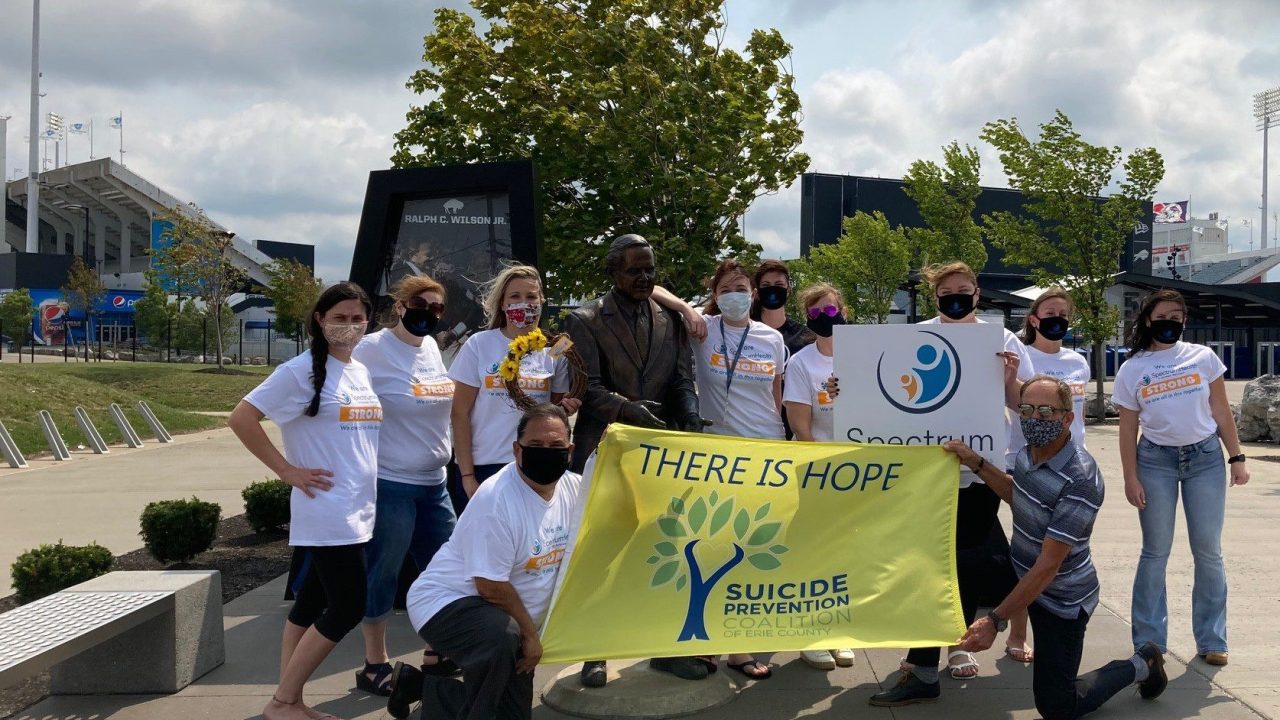Hello my friends and welcome to the beautiful month of September! September appears to mark so many notable and exciting things including Football Season, Children going back to school, and even the excitement of the return of Apple Cider Slushies! Well, for those of you who don’t know, September has also been identified as the National Suicide Awareness and Prevention Month. During this time, you will find many mental health advocates, non-profit organizations, and even suicide survivors speak out to provide the facts about Suicide.
Now, many of you may think, “Suicide doesn’t affect me or anyone I know. Why is this important for me to be aware of?”
Well, let’s take a look at some facts about suicide provided to us by the Center for Disease Control (CDC):
- Suicide is the 4th leading cause of death for adults ages 18-65;
- Approximately 130 Americans a day die by suicide;
- Approximately one person dies by suicide every 11 minutes;
- On a yearly basis, there are approximately 285,000 suicide survivors;
- For every 25 suicide attempts, there is one completed suicide;
- LGBTQ youth are three times more likely than peers who identity as heterosexual to attempt suicide; and
- Women are four times more likely to attempt suicide; however, males make up 79% of completed suicides.
“Wow! I did not realize how prevalent suicide is?”
The truth of the matter is that suicide can affect any one of us at any given time. With this being said, the goal of National Suicide Awareness and Preventions Month is to teach others to recognize the warning signs that someone may be at risk for suicide Take a look at the following more common warning signs:
- Discussion regarding feeling hopeless or being a burden on others;
- Talk about having no reason to live or thoughts about death;
- Increase in substance use;
- Increase in risk taking behaviors such as drinking or driving, promiscuity, criminal activity;
- Sleeping too much or too little;
- Giving away prized possessions;
- Withdrawing from family, friends, or activities once enjoyed; and
- Looking up ways to end their lives.
Please note, this list is not meant to be all encompassing so if you find something else that concerns you, do not hesitate to reach out to a professional so they can fully assess the situation.
“So, Katrina, what do I do if I have concerns for someone?”
Many times, people who are experiencing suicidal thoughts may fear reaching out or are afraid what will happen if they do reach out. Although it can be scary, there are MANY resources in the community available to help. If you are concerned about someone you love, please do not hesitate to reach out for help. It is ALWAYS better to err on the side of caution when having concerns someone may be suicidal. If you are able to, look to contact a community resource with them so they feel included and supported while reaching out for help. I know this is not always possible so if you are not able to do this with them, you can still contact these resources to get your loved on the help they need. The list below highlights some of the resources we at Spectrum Health and Human Services have to offer you, including directly in the Springville area.
* Spectrum Health and Human Services Springville Counseling Center – A Community Clinical Behavioral Health Center (CCBHC) that provides multiple different services including but not limited to individual counseling, group counseling, and psychiatric care. Recipients participate in an intake assessment and the treatment team will look to explore the best course of action to meet the individual’s needs. Additionally, all clients will have access to the afterhours crisis line which can be used when the clinic is closed.
*Spectrum C.A.R.E.S. – Provides 24/7 crisis support for children and adolescents for all of Erie County. This can include but is not limited to safety planning, lethality assessments, phone support and linking with community partners for ongoing care.
*Spectrum Health and Human Services Urgent Car e- Provides integrated mental health and substance use crisis assessments for individuals 18 and up. Individuals in crisis are encouraged to present to the urgent care where they will meet with providers who will assess their immediate need and then look to link them with the appropriate level of ongoing services.
In addition to the above resources, individuals in crisis may also utilize the following:
*Crisis Hotlines
*Erie County Crisis Services- 716-834-3131
*Cattaraugus County Crisis Services- 716-373-8040
*Olean General Crisis Hotline: 1-800-339-5209,
*National Suicide Prevention Hotline- 1-800-273-TALK
*Crisis Text Line: 741741
*Psychiatric Emergency Rooms
*Olean General Hospital
*Erie County Medical Center
“Katrina, I had no idea what to look for before and never realized how many resources are available! What would be your best advice if I have concerns?”
Simple: Do not be afraid to ask for help! Whether you are experiencing these thoughts or you are concerned about a loved one. Suicide is such a tough topic and I know many people are afraid to open up about having these thoughts for fear of consequences. The truth of the matter is that suicidal thoughts are way more common than many realize, and it is OKAY to ask for help. Suicide is preventable and there are MANY resources in the community ready and wiling to help. Each and everyone of us can make a difference and help the fight to help end death by suicide. Just by reading this post, you are one step closer in making a difference. When in doubt, please reach out.
Katrina Norris
Clinical Director, Springville Counseling Center


